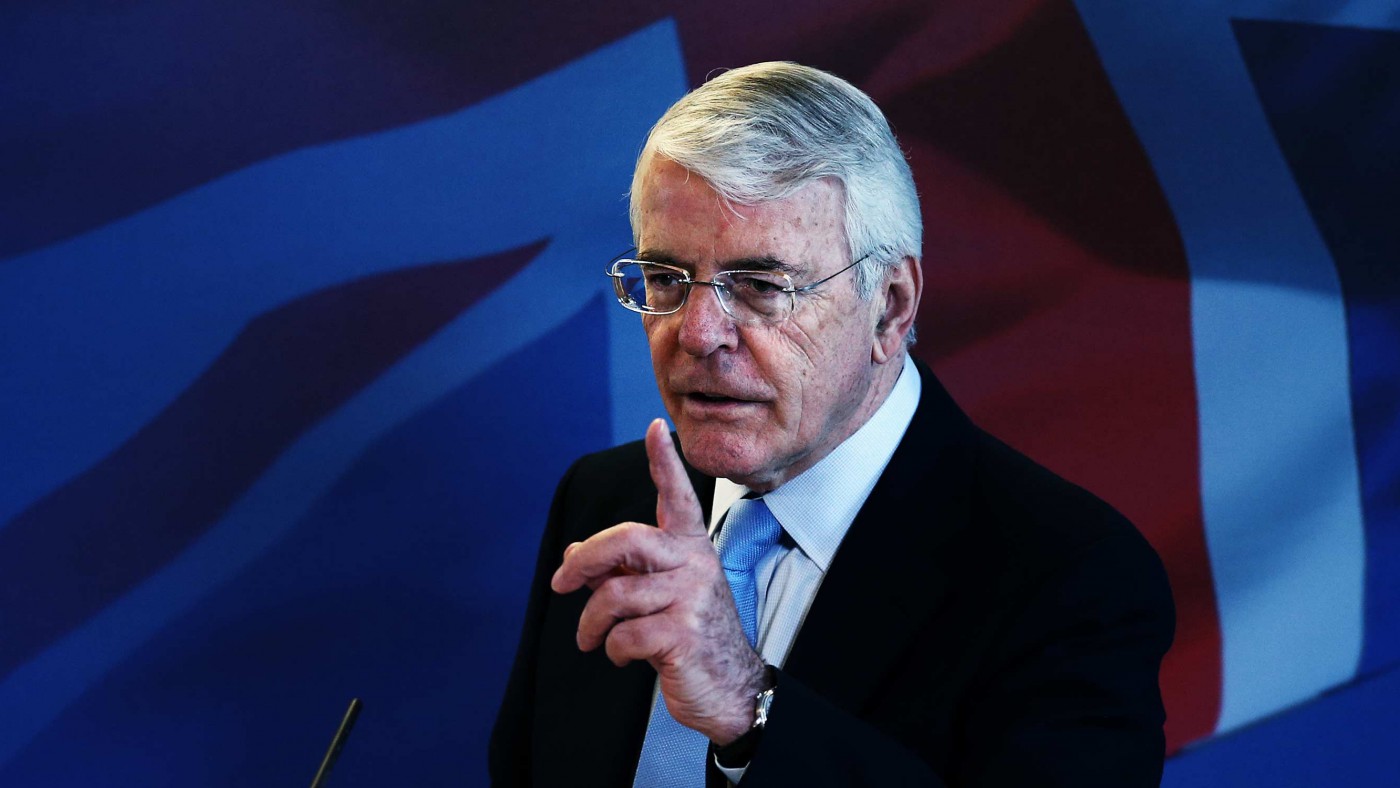“For the United Kingdom,” former prime minister Sir John Major told BBC Radio 4’s Today Programme this morning, “67 million out of a world population of 7 billion, to break off and head into splendid isolation doesn’t seem to me to be in our interests.” In politics that is called a “Straw Man Argument”, when someone advances a point that literally no-one is making, solely in order to tear it down. It is used all the time by politicians with inherently weak cases. The keywords are of course “splendid isolation”, for only one mainstream politician has ever argued that Britain was better off in isolation, and he did it 120 years ago.
The Canadian minister George Eulas Foster (1847-1931) stated in a debate in the Canadian parliament in Ottawa in 1895 that “the great Mother Country is splendidly isolated in Europe”, and was roundly criticized for it by his Liberal opponent Richard Cartwright at the time. The phrase would have died there and then had it not been picked up a sub-editor at The Times and used as a column heading.
Thereafter, Lord Salisbury’s 1895-1902 Government was regularly criticized for advocating “splendid isolationism” despite its ministers vigorously pointing out Britain’s multifarious treaty obligations, trading connections and military responsibilities all over the world.
Since then the phrase has been used constantly, but only in the sly way that John Major has just used it. For he knows perfectly well that leaving the European Union would actually decrease rather than increase Britain’s isolation, because it would allow her to make bilateral trade deals with huge markets like China and India that have for years not had a deal with the EU. Britain’s central role in the United Nations, NATO, Commonwealth, OECD and any number of other multinational organisations would be entirely unaffected by leaving Europe, and thus would hardly leave her “splendidly isolated”.
Nor would she even be splendidly isolated from the EU itself, which runs an overall trade surplus with her. Britain would, it’s true, be constitutionally detached from an organization whose GDP is projected to fall from above 30% to below 20% of global GDP by 2050, but you won’t catch Major admitting statistics like that on Radio 4. Nor was he too keen to remind listeners of his own role in the Maastricht Treaty, which he boasted before he signed it would stall the Eurocrats’ drive to ever-closer union’ but in fact just turned out to be yet another milestone along it. And when the Danes voted against it in the kind of national referendum he refused to give Britons, he helped cajole them into a second one.
The Maastricht treaty removed the power of sovereign states to manage their own economies by giving the European Central Bank the right to set monetary policy such as interest rates, it made provision for federal controls of public spending and set the scene to merge the currencies of the member states into the euro, to the detriment of the economies of smaller countries such as Greece and Portugal. Just because Major secured an opt-out for Sterling, he shouldn’t think he can pontificate about Britain’s relationship with Europe which he helped worsen, let alone with bogus arguments.


